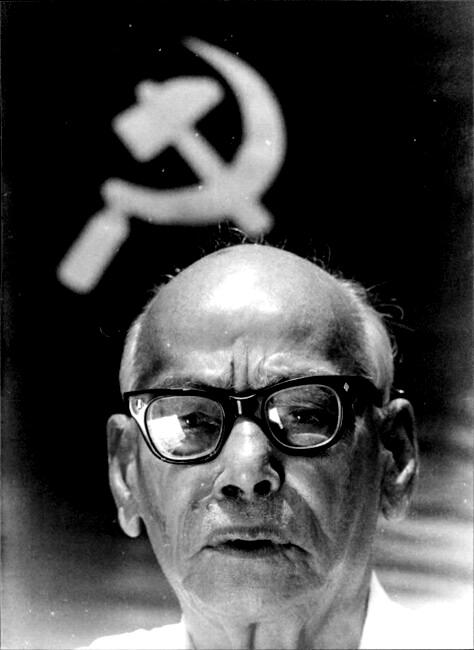Bellal Bin Quashem
On 31st December, we remember the death anniversary of one of the leading figures in Bangladesh’s communist movement, the eminent leader and pioneer of the workers’ and peasants’ struggles, Comrade Moni Singh. He passed away on this day in 1990. From 1984 until his death, he had been bedridden. Though Comrade Moni Singh is no longer with us, his ideals, revolutionary spirit, and political vision are still alive in our hearts. He was not only a revolutionary leader but also a dedicated fighter who devoted his life to social change. On his death anniversary, we look back at his life and work, remembering his contributions.
Moni Singh was born into a zamindar family on 28 June 1901. After completing his primary education in Susungdurgaon, he went to Kolkata for secondary studies. In 1914, he joined the Anushilan Samiti, a revolutionary organization. In 1925, after being influenced by Marxism, he joined the Communist Party. After facing police torture and exile, he returned to Susungdurgaon in 1937. In that area, he organized farmers to fight against the “tong” system and led peasant movements. After the Partition of India in 1947, he took on the leadership in East Pakistan. For his participation in the movements, the Pakistani government issued a warrant for his arrest and confiscated all his movable and immovable properties. For 20 years, he led the Communist Party while carrying the weight of this warrant. In 1967, he was arrested while in hiding. His contribution to the great Liberation War of Bangladesh is undeniable.
Moni Singh’s political life was full of intense struggle. His contributions to Bangladesh’s Liberation War, labor movements, peasant struggles, and the fight for human rights are invaluable. He believed that a society that does not provide its people with their rightful share cannot progress. His life was that of a soldier, who believed not just in words but in actions. He spent the most important years of his life working for the rights of the oppressed classes.
Comrade Moni Singh’s ideals were centered on the liberation of the working class. He understood that exploitation, deprivation, and inequality were an unbreakable reality in Bangladeshi society. Therefore, he constantly called for resistance against the exploiters. He did not limit himself to political struggles but also paid keen attention to social development and education. According to him, without a revolution in education and culture, no genuine social change was possible.














































